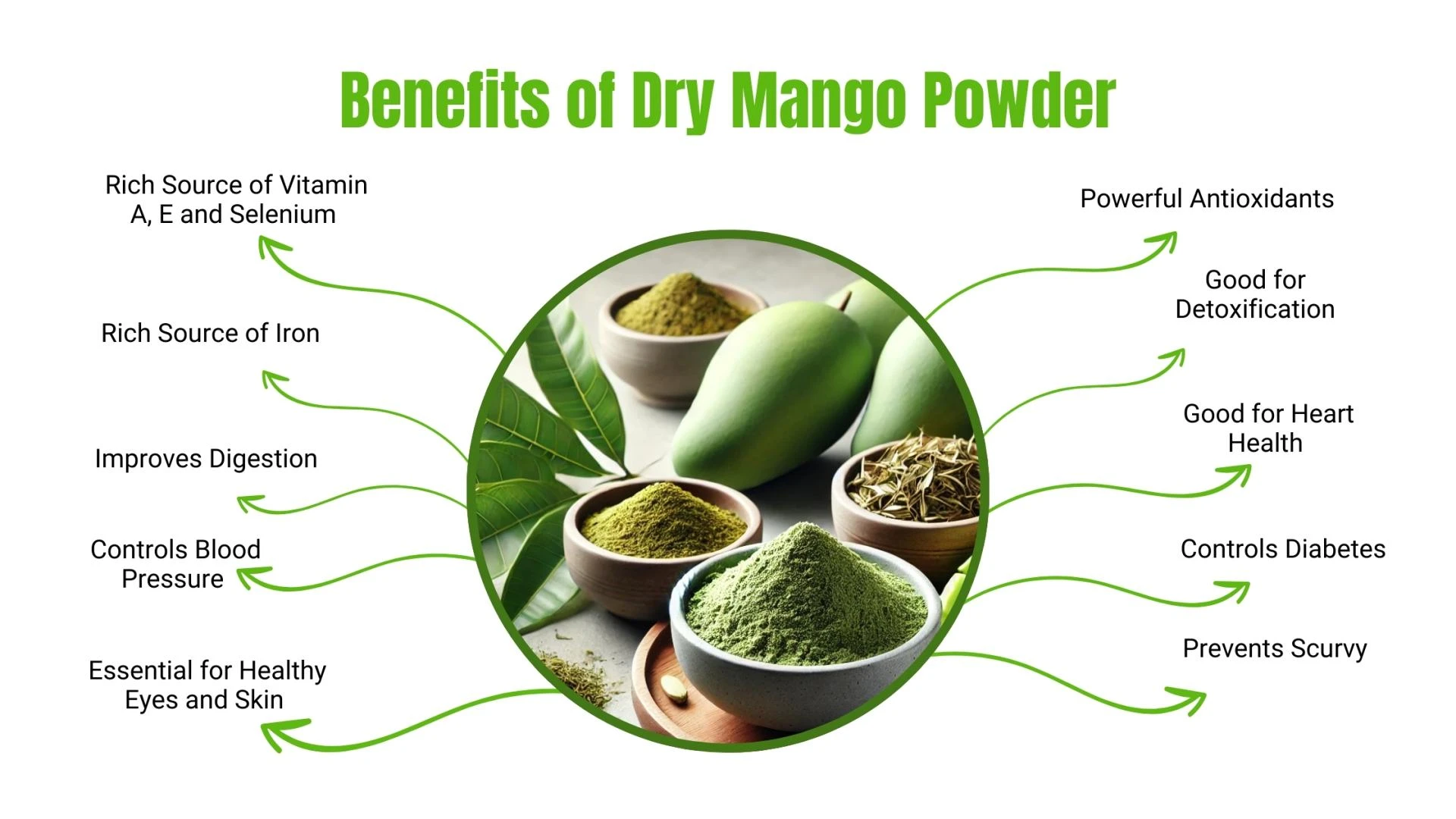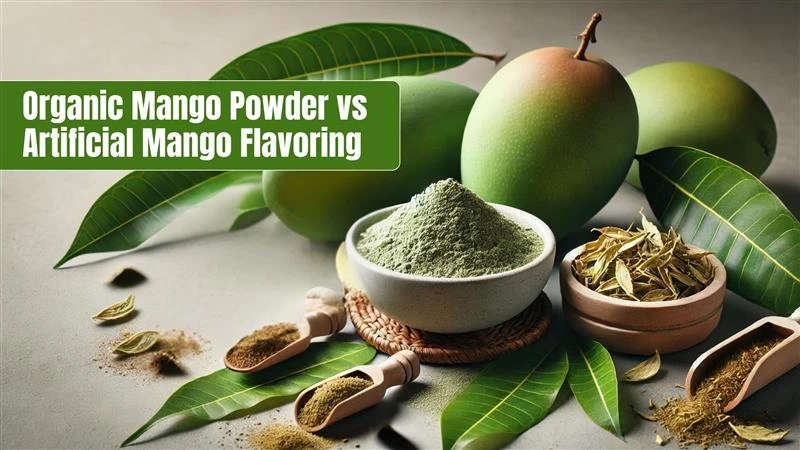Mango, often called the "king of fruits," offers a complex flavor profile that is succulent, sweet, and aromatic. Its flavor is widely used in beverages, foods, ice creams, and other products. For manufacturers looking to incorporate this popular flavor into their products, the choice between organic mango powder and artificial mango flavoring is a critical one. This guide explores the key differences, benefits, and considerations to help you make an informed decision.
What is Organic Mango Powder?
Organic mango powder is made from dehydrated and ground mangoes. The process involves selecting mature mangoes, dehydrating them, and then grinding them into a fine powder. This powder retains the natural flavor, aroma, color, and nutritional value of the fruit.
- Production: Organic mango powder is sourced directly from farms, ensuring high quality and freshness.
- Purity: It contains no artificial colors, flavors, or preservatives—just 100% organic mango.
- Nutritional Value: Organic mango powder is rich in Vitamin C, antioxidants, and dietary fiber, making it a healthful addition to various products.
What is Artificial Mango Flavoring?
Artificial mango flavoring is created through a combination of aroma materials to mimic the natural mango flavor. These materials can be of synthetic origin and may include hydrocarbons, alcohols, aldehydes, ketones, acids, esters, oxides, lactones, and sulfur compounds.
- Imitation: Artificial flavorings are designed to replicate the taste and aroma of natural mangoes.
- Cost-Effectiveness: These flavorings are often cheaper to produce than natural alternatives.
- Consistency: Artificial flavorings can provide a consistent flavor profile, regardless of the season or mango variety.

Benefits of Using Organic Mango Powder
- Authentic Flavor: Organic mango powder provides a genuine mango taste, capturing the fruit's natural essence.
- Nutritional Benefits: It adds nutritional value to products, thanks to its high Vitamin C, antioxidant, and fiber content.
- Clean Label Appeal: With no artificial additives, it appeals to health-conscious consumers looking for natural ingredients.
- Versatility: Can be used in smoothies, desserts, marinades, and even cosmetics. It can also add a tropical twist to recipes.
- Farm-to-Table Freshness: Sourced directly from family-owned farms, ensuring the highest quality and freshness.
Considerations for Using Artificial Mango Flavoring
- Cost Savings: Artificial flavorings are a more economical option for manufacturers.
- Consistent Flavor: They offer a stable flavor profile, which can be beneficial for large-scale production.
- Specific Applications: Ideal for products where the primary goal is flavor replication without added nutritional value.
How to Differentiate Between Organic and Artificial Mango Products
- Taste: Organic mangoes offer a natural sweetness, while artificial ones may leave a slight burning sensation.
- Juice Content: Organic mangoes typically have more natural juice compared to artificially ripened ones.
- Color: Artificially ripened mangoes may have a mix of light and dark yellow colors, indicating uneven ripening.
- Ingredients List: Check the product label for "organic mango powder" versus "artificial flavoring".
Applications
- Organic Mango Powder: Sprinkle on yogurt, blend into smoothies, or use in desserts for a tropical twist. It can also be used in marinades or as a natural flavor enhancer. Additionally, it can be used in DIY face masks for skin benefits or added to hair oils for a healthy scalp.
- Artificial Mango Flavoring: Ideal for beverages, ice creams, and processed foods where cost and flavor consistency are primary concerns.
Conclusion
Choosing between organic mango powder and artificial mango flavoring depends on your product goals. If you prioritize authentic flavor, nutritional value, and a clean label, organic mango powder is the superior choice. If cost and flavor consistency are your main concerns, artificial mango flavoring may be a viable option. By understanding the differences and benefits of each, organic ingredients manufacturers can make informed decisions that align with their brand values and consumer expectations.


